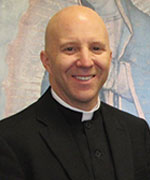Displaying items by tag: for the heart
Plots, Power, and Our Response
Servants of Excellence
“So from that day on they planned together to kill him.” John 11:53
What was the moment when the religious leaders decided to take the life of Jesus? Oddly, it was just after Jesus raised Lazarus from the dead.
Interesting, isn’t it? Jesus saved a life, rescuing a good man from the grave . . . and the miracle was too much for the scribes and Pharisees. They convened a council to discuss the matter and said, “If we let him go on like this, all men will believe in him, and the Romans will come and take away both our place and our nation.”
The central issue? Raw power. If they allowed Jesus to continue doing good, no one would look upon them with awe and reverence. Jesus would take their place. The chief priests and Pharisees would no longer rule the people; Jesus would take pre-eminence. And they couldn’t stomach the thought. Too much—their riches, their livelihood and their places of honor—was at stake.
So, they plotted to kill Jesus. All because he rescued a good man.
Things are no different today. Many of us are trying to do something good—rescuing the innocent from death—and there are those who wish to eliminate our voices, our ministries (“fake clinics,” anyone?) and our effectiveness.
They mock us; and they demean us. Though we find it hard to believe any of them would kill us if given the opportunity, is it so far-fetched to consider? If we were in Jesus’ world, where show trials could be convened against anyone the powerful deemed a menace, do we believe the results would ultimately be different?
Jesus’ response to this plot however, is a teaching moment for us. For one, Jesus continued to serve and to teach his disciples. When Jesus was confronted with betrayal, instead of rebuking Judas, Jesus simply said, “What you do, do quickly.”
When faced with false accusers, Jesus was never defensive, always holding fast to the truth. And on the cross, Jesus asked forgiveness for those who sought to kill him.
In Jesus’ day, the rich and powerful thought they won a victory when Jesus went to the cross. They couldn’t have been more wrong. Instead, the cross was the beginning of a mighty movement still growing today.
What about us? When the powerful—with millions of dollars, paid-for lobbyists and PR machines running 24 hours a day—come after us, how do we respond? Like Jesus, we can respond with calm, with truth and with love.
When we do this, the world takes notice. And a movement—one of life and hope—continues to grow.
Coach-Pitch Baseball and a Fascinating View of God
Servants of Excellence
“Therefore, there is now no condemnation for those who are in Christ Jesus.” Romans 8:1
The other day I was tasked with keeping the scorebook for my son’s 8-Under baseball game, where the coaches pitch, the ball gets tossed all over the place and somehow, the umpires keep track of it all.
Keeping the scorebook is not difficult in this league. It’s a chore in “real” baseball, because scorers must track “official” hits, decide on errors, describe every out in detail (but with numbers only) and more stuff I can’t fully explain.
For instance, if a major league player hits the ball to the third baseman who bobbles the ball before making a throw and the runner reaches first, it’s scored E5 (Error on the 3rd Baseman). In our league, if all ten (we need an extra) players in the field throw the ball over each other’s heads for 15 minutes and the runner—exhausted—finally reaches home, it’s a home run. Easy peasy.
My job as a scorer then, was simple. All I had to do was track who made outs, and whether a kid got around the bases for a run. That’s it. No errors, no fancy scoring. If at the end of the game my book matched the score book for the other team, all was good. No nuance in this league, believe me.
Sure, when errors are made, the kids are corrected. But we’re not tracking this stuff. We’re just happy they are out there. We’re happy they are playing.
Our game is about encouragement, hits and scoring. And even the word “hit” can have a different definition. Heck, when my kid hits the ball, we’re cheering whether he is safe at first or headed back to the dugout.
One night, the only time he connected with the ball it rolled a few feet into foul territory. He told me later, “I got one hit tonight!” Good enough for me. We’re flexible in 8U baseball.
Which tells me something about God. If we—being the somewhat decent parents we are—are such encouragers, what about God?
Sometimes we see Him as a taskmaster, recording our sins and constantly chiding us for our failings. It’s as if we see Him with a score book, noting nothing but errors and—to take Isaiah 64:6 out of context—seeing anything good we accomplish as nothing but “filthy rags” in His sight.
Yes, we make errors. And a good parent gently corrects a child who makes a mistake—either in the field or in life. But we don’t spend much time keeping track. We focus on the good, celebrating those times when our child hits the ball or performs an unselfish act.
Maybe God is more like a good parent than we realize. Perhaps He is cheering us on, even amongst our errors, urging us to “Go!” and change our world.
One kid on our team cries every time he doesn’t make it to first base. His head drops, he drags his bat back to the dugout and then collapses on the bench in agony. Each time this happens, a coach tries to cheer him up and get him “back in the game.” Almost always, it works.
What about us? Do we focus on our failings?
Perhaps God focuses more on our scoring than on any errors we make. When He closes the book on our day, it may be true that we bobbled the ball of life and threw it the wrong direction. He will correct this at the appropriate time. But I wonder if He turns to His Son at His right hand and says, “Wow, he sure hit the ball on that one play, didn’t he?”
And maybe, like an 8U baseball parent, He smiles.
by Kirk Walden, Advancement Specialist
It’s Never the Wrong Time to do the Right Thing
Servants of Faith
But they themselves were filled with rage, and discussed together what they might do to Jesus—Luke 6:11
We know wherever Jesus went, many loved him and followed. But some—almost always the cultural and religious leaders—despised him no matter what he did.
In the verse above, the scribes and Pharisees in the synagogue were filled with rage because Jesus did the unthinkable, healing a man’s withered hand . . . on the Sabbath. How dare Jesus do such a thing? Couldn’t he have waited until Sunday?
No, Jesus could not wait. He had a point to make. Over the years, those in charge of all things religious had been adding to the law of God, creating extra rules regarding what it meant to “keep the Sabbath holy.” These rules were relatively easy for those in authority to keep; they didn’t have to worry much about tending flocks, finding food and getting oxen out of ditches.
But for those under their religious authority, keeping all the man-made Sabbath rules was an incredible burden.
Jesus then, asked a question when he saw the man with the withered hand. “Is it lawful on the Sabbath to do good, or to do harm, to save a life, or to destroy it?”
Like every one of Jesus’ questions, this was a good one. It boxed the religious leaders in a corner, pointing out the hypocrisy of their thinking.
Therefore, they were “filled with rage.” To Jesus, it was not surprising to see leaders of his own culture angry with him. He appealed to normal people, and this was too much for them to stomach.
Today, it’s no different. In our culture the “leaders” are those who preach to us about what we must think and how we must behave. They are in Hollywood, the media, and some are in the political realm. They tell us we are to bow down to gods like “choice” and “tolerance.”
Over time, these leaders created their own commandments; commandments which seek to impede—or even stop us from reaching those who need all of us in the pregnancy help community. According to these commandments, we are to cease talking about faith. And, we must desist from speaking honestly about the wonder of human life.
As those who serve in the pregnancy help community, we understand the opposition Jesus faced. Like him, we ask ourselves, “Is it lawful in our society to do good? To save a life?”
Our answer is always “Yes.” Because just like Jesus, we realize there is never a wrong time and never a wrong situation . . . to do good.
by Kirk Walden, Advancement Specialist
An Image to Change Hearts
by Josh McClure, Guest Writer
I was blessed several years ago to attend a conference where Andy Merritt was the keynote speaker. Andy is a preacher at Edgewood Baptist Church in Columbus, Georgia, and is one of the pioneers of the pregnancy help movement.
Andy shared how his church started a center in their building, and watched as it transformed the lives of men and women. I was moved by a lesson he learned along the way, which you can listen to here.
Here is what I learned:
God is merciful and patient. He remained committed to Israel even when they were unfaithful for many years. Yet Israel’s Idolatry led to immorality and the crossing of a line that brought judgement upon, and a long exile for Judah. The first two chapters of Amos show that God judges nations and where He draws a line at the shedding of innocent blood. Amos explains that because of the sins of Manasseh, God would not pardon their sin.
In 2 Kings 21, we see that Manasseh stands apart from all the prior kings because he instituted child sacrifice to a false god named Moloch. This child sacrifice idolatry was to provide prosperity and protection for the Judah.
Manasseh, when facing challenging neighboring nations did not turn to God, he chose to sacrifice children on an idol to secure prosperity. God can forgive any sin, so long as the heart of man is repentant. There is no greater example of this than King Manasseh himself repents in 2 Ch 33:21-25. Yes, we will see the formerly wicked King Manasseh when we enter the Kingdom of God.
And yet, God does not hold back his judgement even when Manasseh repented, because the people did not repent with him. Two generations later, Manasseh’s grandson, Josiah, became king and tore down the idols of Moloch, and he undertook the greatest national reformation we have ever seen in scripture. Peace was in Judah during his reign. But as soon as Josiah dies, his son reinstitutes Moloch worship, and the people join in.
Jeremiah 3:10 describes the nation’s repentance under Judah as a fraud, and Ezekiel 9 is dedicated to the judgment that had finally come upon Judah. Notice, God spares those who groan and lament the state of the Judah, and He focuses the beginning of judgment on the spiritual leaders.
This country is a long way down the road toward judgment. While Manasseh sinned greatly for 55 years and filled Jerusalem with blood, the United States has overshadowed Judah’s shedding of innocent blood by an exponential magnitude.
The people of Judea worshipped Moloch for the same reasons people choose abortion today. We have only become more efficient at it. In one year, more innocent lives are taken in this country than could have possibly occurred in Judah.
Yet there is hope for averting God’s judgment because the people are not uniform in the acceptance of abortion. Regular polls done in this country indicate the majority opinion is that abortion is wrong. Millennials are described as the most pro-life generation in decades. Abortion, along with many other destructive sins, is legal in this country, and there are agents pushing for greater acceptance of immoralities such as these.
In 2015, the State of California passed a law that would require pro-life pregnancy centers to use their walls as billboards to advertise taxpayer-funded abortions. The law also makes it impossible for non-medical pregnancy centers to advertise by imposing burdensome disclaimers to crowd out the pro-life message in as many as 13 languages.
This law was crafted by the pro-abortion lobby and hatched in the California Legislature. Its purpose; to silence those who would lovingly offer an alternative to men and women facing a difficult choice in an unexpected pregnancy.
On the eve of boarding a plane to go to Washington, D.C. to bring our case to the Supreme Court, I was given a picture painted by Sharon Mayfield—a supporter of Pregnancy Care Clinic in San Diego. I had asked her to consider painting it a year earlier, and it came at such an important time. The picture is of King Josiah breaking down the altar or Moloch.

Notice the two emotional responses at seeing this picture. First, there is a feeling of victory, strength, and courage as an injustice is being removed from practice. We draw hope that the idolatry of abortion can be stopped in this country. But let us remember also the failure of Josiah. While he radically altered his trajectory with God averting judgment against the country, the people’s hearts were not changed.
We must recognize that abortion cannot be stopped by mere laws of men, but by changing the heart of the people. This is a one person at a time campaign, and it takes commitment to see it through.
Our country was founded on the idea that our rights including the First Amendment are endowed to us by our Creator, and the Constitution is set in place to protect those rights. It is a gift given by God that we can believe freely in Him, and to act or speak according to our convictions without fear of persecution from man. Infringing these rights is nothing short of tyranny.
California sought to force pro-life clinics and the people who work there to violate their convictions and purpose. No one should be forced under threat to speak a message contrary to what they believe. I believe we will see justice prevail, and California’s AB775 overturned.
The second emotion when viewing this painting is horror and dread at the thought of all the years, and all the innocent lives destroyed on that altar. We are also reminded of the terrible judgment from God that befell Judah, and that same judgment is looming for this country.
The heart shudders at the very image of that idol even as it is being torn down. I have to give a shout-out and recognize the heart of Sharon who took on this project. In some ways, I am sorry I asked her to paint it. I don’t think I knew what I was asking of her. In beholding the tragedy of this picture, I know her heart was burdened by painting it. She shared with me, there were times she had to put it away and not look at it and do other life breathing projects. I saw her breathe a sigh of relief when she handed it to me.
I will never forget Sharon’s sacrifice to paint this prophetic piece. You see, there are very few pictures of the idolatry of Moloch. We have an aversion toward the suffering of the innocent. I cannot bear the image of a child being placed on that idol, just as I cannot bear the image of an aborted baby. This painting is but a shadow of the Idolatry of Moloch. It is victorious and yet still I shudder.
Abortion is performed behind the veil of the womb, our society is blind to it! An innocent life is taken for the benefit of perceived prosperity or peace. Sharon’s painting has pulled back the veil, and given us new context. She has encouraged us that we can make a difference. We can see abortion ended, we can see a culture of life restored. I pray God’s blessing on Sharon, and I pray God would use this picture for His glory, to change hearts (especially of our leaders) and embolden his faithful workers.
By Faith, Rahab Changes Human History
Servants of Excellence
“By faith Rahab the harlot did not perish along with those who were disobedient, after she had welcomed the spies in peace.”
Hebrews 11:31
We all probably know the story of Rahab the harlot. As a quick refresher, Joshua sent spies into the city of Jericho to check out the city Israel was to conquer. Rahab, a woman of ill repute, took in the spies and when the King’s men asked her to turn them over, she hid Joshua’s men in her attic. Then, she lied to the king’s men, telling them the spies “went thataway!” Off the king’s men went, never finding the spies.
A short time later, the army of Israel marched around Jericho for six days. On the seventh, they blew the trumpets and the walls fell.
Rahab’s faith—a belief that the spies were men of God—saved her and her family. This led to a series of amazing events.
Here’s a question: “What would have happened if Rahab obeyed her king instead of taking her step of faith?”
The quick answer is, “Well, God would have worked it out another way.” Maybe this is correct. But we don’t know this.
What we do know is; a woman who was likely at the absolute bottom of the social ladder, who was likely mocked by the very men who accessed her services, who was labeled in the most hurtful way . . . suddenly faced a choice and an opportunity.
She could choose to obey the authority she knew (her king), or she could choose the God she did not know. She decided on a leap of faith.
Hundreds of years later, the writer of the letter to the Hebrews still called her “Rahab the harlot.” So no, she didn’t lose her label. But she did gain entrance into what we now call, “The Hall of Faith” in Hebrews 11.
Rahab’s choice led to the conquering of Jericho. Which led to Israel’s rise as a nation. Rahab’s choice also led her to marry Salmon, which led to the birth of Boaz. Boaz married Ruth, one of only two women to have books of the Bible named after them. Rahab, Ruth and others created the generational line leading to the mighty King David. And King David led to . . . Jesus.
One choice. Just one. By a woman with everything stacked against her.
Two thoughts to keep in mind.
One, the clients and patients who come in our door may have everything stacked against them. But one choice—just one—can change everything. Let’s always remember this.
Two, what about us? We all wonder at times, “Can God work through me?” I don’t write the following to diminish Rahab, but her being labeled a harlot is a lesson that God uses the unlikely. Regardless of our pasts--whether better or worse than Rahab’s--God seeks those who will seize the opportunities He gives.
Rahab seized her opportunity and her moment of faith changed the scope of human history. Why can’t this happen when the unlikely person walks in our door? And why can’t this happen with us, his unlikely servants?
by Kirk Walden, Advancement Specialist
Thank You for Your YES
Dear Friends in Christ and Fellow Laborers in the Service of Life and Family,
Thank you for your heroic witness and numerous sacrifices offered on behalf of the most vulnerable of our global societies. As fellow servants of Life and Family, HLI has experienced the powerful life-changing impact of Pregnancy Centers and the services they offer.
Heartbeat International's mission is to “Reach and Rescue as many lives as possible, around the world, through an effective network of life-affirming pregnancy help, to Renew communities for Life.” This effort is possible and actualized because you believe that every precious life matters and has inherent dignity – is unrepeatable and deserves to be protected and served.
Your intercession has not only saved the lives of countless innocent pre-born children and their families from the violence of abortion, but it has also inspired greater awareness of our need to step out of our comfort zone and dare to stare the ongoing, physical reality of abortion in the face. Nothing brings home the brutal reality of abortion like standing on a sidewalk watching as men and women walk into an abortion facility to have their precious children killed. This experience can be gut-wrenching, but it’s also exactly what many of us need to shake off our complacency and light a fire in our bellies for Life.
Your great mission challenges every member of society, Christian and non-Christian, to answer the questions, “Who is my neighbor?” and “Lord, when did I see you hungry, thirsty or naked…?”
Because of your love and compassion, people who believe in the dignity and sacredness of all human life, women and their unborn children receive genuine care and support, no matter the circumstances. Your charity and intervention authentically helps women see past the pro-abortion propaganda and immediate struggle they face, offering a variety of true help and services. Heartbeat’s accompaniment stands in stark contrast to the death peddlers whose solution to a current “crisis” is the destruction of a child and a mother’s lifetime filled with misery and memories of “what could have been.”
I believe abortion will never end until every Christian man and woman of good will considers it a personal responsibility to do everything reasonably in his or her power to protect life. That’s because abortion is so deeply embedded in our culture, we can’t expect a mere change of the laws, or the correct
public relations “strategy”, executed by large pro-life organizations, to loosen its stranglehold. What we need above all is conversion of heart, on a societal scale. And unless Christians like you and me are out there, literally on the street corners, publicly witnessing to self-sacrificial love and the Gospel message that will never happen.
Yet, it is hard to comprehend what our world would be like without people like you willing to sacrifice for Love. There is no doubt that the grip of the Evil One and the Culture of Death would be far tighter. You seek no self-congratulatory praise but offer everything for God’s glory alone. Know that you, a unique and unrepeatable gift, are making an irreplaceable difference. You are saving lives, one heartbeat at a time.
Thank you for saying YES!
Fraternally in Christ,
Rev. Father Shenan J. Boquet
President of Human Life International
Join us for Fr. Boquet's keynote address at the 2018 Heartbeat International Annual Conference. Fr. Boquet will be just one of seven kenote speakers at this year's Heartbeat Conference in Anaheim, California. Click here to learn more and register!
Joyful, Joyful March We Onward
by Tim Stephens, EWS Developer/Designer/Digital Marketing Specialist
". . . fixing our eyes on Jesus, the author and perfecter of our faith, who for the joy set before him endured the cross. . ."
Hebrews 12:2
Joy is a unique and beautiful concept. We regularly associate joy with feelings of happiness and glee and other fortunate states of wellbeing, but in the life of a Christ-follower, joy is often best represented in a steadfast service to His Kingdom during our trials and pain. Happiness and joy are not mutually exclusive, but while happiness is primarily influenced by external factors, joy is a consistent and internal state that surpasses our circumstance.
This is iterated time and time again throughout the Bible:
“In this you greatly rejoice, though now for a little while you may have had to suffer grief in all kinds of trials” 1 Peter 1:6
“. . . sorrowful, yet always rejoicing; poor, yet making many rich; having nothing, and yet possessing everything.” 2 Corinthians 6:10
As followers of Christ, we desire to imitate the servant spirit that Jesus has exemplified for us. His unrelenting and sacrificial servanthood and care endured all things - all trials, even to the cross – with Joy! Philippians 2:5 tells us that our attitude “should be the same as that of Christ Jesus.” We are called to serve, as He did, with joy.
We aren’t promised happiness, particularly as we seek to serve the weary, the broken, the poor and the hurting, but we can find joy in the work that we do… and what better service to find joy in than to speak to and rescue life? In fact, what better service to experience happiness birthed from joy? As we reach the women and men that are scared and hurting, as we see the lives of innocent children saved and as we have opportunity to see first-hand some of those children grow and experience life, we can receive a happiness and glee beyond measure.
As I write this, I’m reminded of one of my favorite lyrics:
“Ever singing, march we onward,
victors in the midst of strife;
joyful music leads us sunward,
in the triumph song of life.”
Take time today to be encouraged and to encourage others as we march onward as victors in the midst of strife. We may be opposed, oppressed, and ostracized, yet we will move forward in obedience, with joy in our hearts and our eyes fixed on Jesus, in the triumph song of life.
HOPE Floats!
by Ducia Hamm, Associate Director of Affiliate Services
“For I know the plans I have for you,” declares the Lord, “plans to prosper you and not to harm you, plans to give you HOPE and a future.”
Jeremiah 29:11 NIV (emphasis added)
Back in the 1950’s, Curt Richter, a well-known Harvard graduate and scientist with Johns Hopkins University did a series of rather unorthodox experiments using water, buckets and rats that resulted in an amazing discovery. He wanted to see how long rats could swim before they drowned. Cringe-worthy no doubt! So you ask “What’s so amazing about knowing how long it takes for a rat to drown?” Bear with me for a bit longer…
Richter put rats into large buckets, half-filled with circulating water. Being notoriously good swimmers – the rats lasted about 15 minutes before giving up and succumbing to the depths of the bucket. Not impressed – I wasn’t either. All I was thinking was “Poor rat!” Richter must have read my mind.
In a follow-up experiment, as the rats started to give up and sink, he pulled the drowning rodents to safety, dried them off, gave them a brief period of rest only to put them right back into that same bucket. Here comes the amazing part – those same rats now swam for an average of 60 hours – YEP – that’s six with a zero or two and a half days.
A rat that was temporarily saved survived 240 times longer than one that was not given any intervention.
Richter’s conclusion: that saving a rat from drowning – even temporarily, gave that rat hope.
More often than not – clients come through your doors on any given day emotionally, spiritually and sometimes even physically “drowning”. They’re trying to just tread water as their life seemingly swirls around them, feeling as if they are getting pulled under at every turn. What these hurting women and men need is an infusion of hope. And that’s exactly what you do – when you answer the phone with a cheerful voice, when your clients are made to feel welcome by a friendly receptionist, when your Client Advocate radiates the Love of Christ so they treat clients as honored guests and not unwelcome, bothersome interruptions. You are essentially taking them out of the swirling waters of their lives, drying them off, providing your clients an opportunity to rest and give them an infusion of hope.
And that’s just what Heartbeat International wants you, as our treasured affiliates to experience as well. We understand that there will be times in your respective ministries that you will feel like you’re “drowning”. When those moments arise – and they will – we want you to know that help is just a phone call or email away. We are here for you with an encouraging word. We are available to listen and advise on an ongoing issue. Heartbeat consultants are available to provide affordable training seminars for staff, board and/or volunteers of pregnancy help organizations.
Also, Heartbeat International’s Pregnancy Help Conference provides a time to “dry off and rest”, offering that infusion of hope and strength to continue on in your mission. Heartbeat is here to encourage, empower and educate so you have the tools and resources that act as “life-preservers” enabling you to keep “swimming” until you reach the shore or at the very least, are in a place where your feet touch bottom (something those poor rats didn’t have).
Put it all together and add in the opportunity to network with fellow workers, you have the assurance that you are not swimming alone.
World Changers Stand in the Gap
by Pastor Andy Merritt
Let me share with you why I believe the Heartbeat Conference is so important for you to attend. In Ezekiel 22 God confronts the nation of Israel with the sins that eventually brought God’s judgment, the most prominent being the shedding of innocent blood mentioned eight times. At the end of the chapter God says, I looked for someone who might rebuild the wall of righteousness that guards the land. I searched for someone to stand in the gap in the wall so I wouldn’t have to destroy the land, but I found no one.
It takes great courage and involves great risk of life to stand in the gap; to rush to where the breach is in the wall, where the enemies of God are pouring in like a flood, to fight back the forces of evil, and repair the wall of righteousness. Sadly, in Ezekiel’s day, God found no one to stand in the gap. However, today you have chosen to stand in the gap in your local pregnancy center ministry. You are doing battle with the forces of evil to end the shedding of innocent blood, to rescue precious babies, and see their mothers and others redeemed by God’s grace.
Thank you for standing in gap! Thank you for being a contemporary hero of faith!
My point is this.
Standing in the gap is costly because it is there were the battle is most fierce, and in pregnancy center ministry we have seen the battle intensify and persecution escalate. It is inevitable wounds will be suffered, and often the greatest battle is not with the enemy, but with our own pain, weariness, & discouragement. Every soldier needs some R&R and that is why the Heartbeat Conference is so important for you to attend.
The Conference is a safe place to receive encouragement, equipping, and spiritual renewal in order to return to stand in the gap with even greater effectiveness. The theme for the Conference is “World Changers” and the key to changing the world is for God to change me. There is no greater priority than our personal relationship with God, because power to stand in the gap is dependent upon purity of heart and life in Christ.
I invite you to attend the sessions I will be leading which will focus on spiritual renewal for the battle. Everything shared will be in the context of and applied directly to pregnancy center ministry. The first is a Tuesday Pre-Conference In Depth Day, entitled, “How to Fight Through Adversity and Discouragement.” The second is a Wednesday 10:00am workshop, entitled, “Serving the God of the Impossible” (How To Deal With Hard Cases). My love and prayers are with you.
Hope to see you in Anaheim!
Not My Circus, Not My Monkeys

Servants of Excellence
“Woman, believe me, an hour is coming when neither in this mountain, nor in Jerusalem, shall you worship the father . . . but an hour is coming, and now is, when the true worshipers shall worship the father in spirit and in truth . . . .” John 4: 21-23
There’s a Polish proverb which millennials often use today: “Not my circus, not my monkeys.” It’s a way of saying, “Don’t drag me into your drama and your issues—I’m not getting involved.”
My daughter used this phrase once and it captured me, because Jesus used this thinking often. The Samaritan Woman at the well in John 4 is a perfect example. We know the story; when Jesus asks the woman to call her husband, she says, “I have no husband.”
And what does Jesus say to this? He tells her something he would not be expected to know; that she has had five husbands and is currently living with a man who is not her husband. Stunned I’m sure, she responds, “Sir, I perceive that you are a prophet.”
Let’s pause for a moment and say collectively, “No kidding!”
She goes on however: “Our fathers worshiped in this mountain and you people (Jews) say that in Jerusalem is the place where men ought to worship.”
Jesus response? In the words of the Polish proverb, “Not my circus, not my monkeys.” In John 4:21-23 he cuts right to the heart of the matter, saying it doesn’t matter where we worship; it matters who and how we worship.
I love it. Jesus never got sucked in to religious debates on non-essential issues. He was about one thing: Reconciling men and women with his father. To Jesus, peripheral matters were a waste of time.
When we reach out to those who enter our centers, clinics and maternity homes, we can count on faith questions. But just like the Samaritan Woman, many of these questions will be peripheral, such as “Do you believe in this doctrine? Do you believe a Christian can do this? That?”
Most of the time, those seeking answers to peripheral issues want to find a dividing point; a way to say, “You don’t believe like me, so I won’t listen to you.”
If we wish to reach others with the love of Christ, our mission begins by finding the heart of the matter, like Jesus did. A few moments after the Woman at the Well asked her non-essential question, Jesus’ response—piercing her heart—led her to say, “I know that Messiah is coming (He who is called Christ); when that one comes, he will declare all things to us.”
Aha. Jesus prodded her to something new, something bigger than her “where do we worship?” question.
Then, Jesus said, “I who speak to you am he.”
Wow. All because Jesus found the heart of the matter. For Jesus, the “where to worship” argument was “Not my circus, not my monkeys.” And within minutes, a heart was changed.
It’s a good lesson for us. Let’s seek the wisdom to lovingly say, “Not my circus, not my monkeys” to some of the questions we are asked—and seek the heart of the matter. For someone searching for true answers, it can make all the difference in the world.
by Kirk Walden, Advancement Specialist

